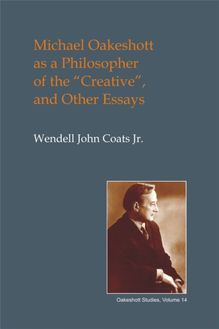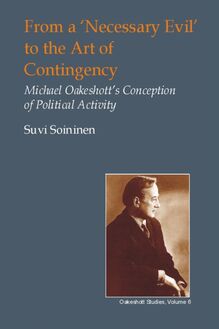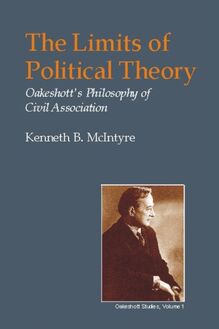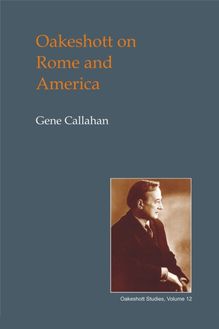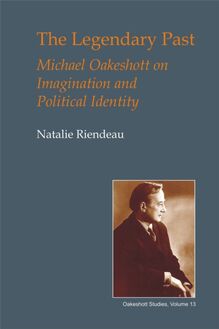-
 Univers
Univers
-
 Ebooks
Ebooks
-
 Livres audio
Livres audio
-
 Presse
Presse
-
 Podcasts
Podcasts
-
 BD
BD
-
 Documents
Documents
-
- Cours
- Révisions
- Ressources pédagogiques
- Sciences de l’éducation
- Manuels scolaires
- Langues
- Travaux de classe
- Annales de BEP
- Etudes supérieures
- Maternelle et primaire
- Fiches de lecture
- Orientation scolaire
- Méthodologie
- Corrigés de devoir
- Annales d’examens et concours
- Annales du bac
- Annales du brevet
- Rapports de stage
La lecture à portée de main
Vous pourrez modifier la taille du texte de cet ouvrage
Découvre YouScribe en t'inscrivant gratuitement
Je m'inscrisDécouvre YouScribe en t'inscrivant gratuitement
Je m'inscrisEn savoir plus
Vous pourrez modifier la taille du texte de cet ouvrage
En savoir plus

Description
Sujets
Informations
| Publié par | Andrews UK |
| Date de parution | 09 février 2017 |
| Nombre de lectures | 0 |
| EAN13 | 9781845406004 |
| Langue | English |
Informations légales : prix de location à la page 0,1124€. Cette information est donnée uniquement à titre indicatif conformément à la législation en vigueur.
Extrait
The Intellectual Legacy of Michael Oakeshott
Edited by Corey Abel and Timothy Fuller
IMPRINT ACADEMIC
2017 digital version converted and published by
Andrews UK Limited
www.andrewsuk.com
Copyright © Imprint Academic, 2005, 2017
The moral rights of the authors have been asserted.
No part of any contribution may be reproduced in any form without permission, except for the quotation of brief passages in criticism and discussion.
Imprint Academic, PO Box 200, Exeter EX5 5YX, UK
Full details of additional titles in the Oakeshott Studies series:
www.imprint-academic.com/idealists
Contributors
Corey Abel, Adjunct Professor of Political Science, Metro State College of Denver
Josiah Lee Auspitz, Director, Philosophy of Institutions Project, Sabre Foundation, Cambridge, MA
Debra Candreva, Visiting Assistant Professor, Wellesley College
Wendell John Coats Jr., Professor of Government, Connecticut College
Douglas J. DenUyl, Vice President, Educational Programs, Liberty Fund
George Feaver, Emeritus Professor of Political Science, University of British Columbia
Paul Franco, Professor of Government, Bowdoin College
Richard Friedman, Associate Professor Emeritus of Political Science, University at Buffalo, State University of New York
Timothy Fuller, Lloyd E. Worner Distinguished Service Professor and Professor of Political Science, Colorado College
Robert A. D. Grant, Professor of Cultural and Political Thought, Department of English Literature, University of Glasgow
Eric S. Kos, Graduate Student in Political Science, University of Michigan and Visiting Assistant Professor, Alma College
Leslie Marsh, Centre for Research in Cognitive Science, University of Sussex
Kenneth Minogue, Emeritus Professor of Political Science, London School of Economics
Terry Nardin, UWM Distinguished Professor, University of Wisconsin-Milwaukee
Keith Sutherland, Editor, Journal of Consciousness Studies ; Publisher, History of Political Thought and Polis: The Journal of the Society for Greek Political Thought
Martyn P. Thompson, Associate Professor of Political Science, Tulane University
Gerhard Wolmarans, Lecturer in Political Science, University of Pretoria, South Africa
Foreword, Timothy Fuller
This volume presents essays on the work of Michael Oakeshott from the first two international conferences of the Michael Oakeshott Association, in London 2001 and in Colorado Springs 2003. The authors herein include both individuals who knew Oakeshott and younger scholars who did not have the chance to meet him but who have discovered his work. This is gratifying since this volume, in the company of a growing number of monographic studies of his work, anthologies of his unpublished writings, and doctoral dissertations, shows that international interest in Oakeshott’s work is expanding significantly. Those of us involved in the Michael Oakeshott Association, and with long interest in his work, naturally see this as a major contribution to the field of political philosophy and to thinking carefully about politics, as well as a deserved tribute to the man.
These essays not only recognize Oakeshott’s contributions to numerous fields of inquiry, but they also compare his work with other major thinkers. There was, in the past, a tendency for students of his work to consider Oakeshott in isolation, but no longer. As a result, not only do we now enjoy sympathetic and affectionate commentary, but also comparative and critical assessments and assertive questioning. This is all to the good. We remember that Oakeshott himself, while presenting his views directly and uncompromisingly, also was committed to conversation as an end in itself, as the most distinctive feature of being human. He was known to say that the philosopher may have a heavenly home but is in no hurry to get there. He did not expect closure on fundamental questions in the temporal sphere of human life even though he did think that, to be a good conversationalist, one needed to be clear on one’s assumptions, taking care to know well what is likely to be said against them in dialogue. The idea that we could have a debate, and at the end of the day, discover a victor and a vanquished, was entirely foreign to him. Thus his self-characterization as a ‘skeptic’ and his philosophical approach to politics. He understood that in politics there are necessarily victors and vanquished, however fleeting and alterable these categories are. To study politics philosophically is thus to consider politics from a vantage point different from that of the politicians themselves, to focus on the ironies of the claims of politics in a way that would disable the politician.
In calling himself a ‘skeptic,’ Oakeshott meant, following St. Augustine, Montaigne, and Hume, skepticism about human pretensions to succeed in ‘the pursuit of perfection as the crow flies,’ to build towers into a putative heavenly kingdom, or to control and manage the contingencies of human existence. Such aspirations he admired in individuals seeking their fortunes as they defined them for themselves, but he deplored such aspirations in governments. He did so because he saw the state as a basically involuntary, but necessary, arrangement presiding over diverse peoples and interests. To invest in a single ideal in this involuntary circumstance imposes on some for the sake of others, suppressing the natural diversity that is the ground of human freedom. What is preferable, he thought, is a ‘civil association’ in which diverse people with diverse interests acknowledge and subscribe to a rule of law to insure the basic order they must have, with a view to affording the greatest freedom to live according to their own self-understandings. Oakeshott thought that this was the principal achievement of modern Europe, emergent in the fifteenth century, gaining grand theoretical expression in the seventeenth and eighteenth centuries, and persisting against fierce attacks in the nineteenth and twentieth centuries. One might describe this as the transformation of relations of command and obedience into relations of authority and acknowledgment, and it was possible because the ideal of the self-regulating individual, competent to pursue individual interests within mutually acknowledged procedural arrangements, not primarily dependent on coercive enforcement, was increasingly instantiated in practice in modern European history.
Nevertheless, as the technical and military power of modern governments began significantly to increase, they brought with them the temptation to invest modern governments with grand purposes for the redesign or reconstruction of social orders. This practical turn of events was encouraged theoretically by the influential growth of ‘rationalism’ in modern Europe under the influence of the thought of Francis Bacon, Descartes, Jeremy Bentham and the modern social sciences. Rationalism and its appearance in politics as ideology, as Oakeshott described it, advocates techniques or methods of reasoning, based on a mistaken conception of reason, by means of which we are to overcome the contingent character of historical existence. In extreme form, it holds that the hitherto endless activity of preserving and changing in politics can be brought to a satisfactory conclusion, and that this is to be done through a coalition of the intellectually enlightened with governments who are confident that they can use their power to steer people to the ‘right’ ends or end.
Thus modern politics is conducted in a charged field polarized between the skeptical attitude towards governmental power and the view that such power is the means to infinite improvement. The contest between the ‘skeptic’ and the ‘rationalist’ has so far proven historically interminable although Oakeshott thought that, in recent times, rationalism had clearly dominated. But because of the power in practice of the ideas of civil association, of rule of law, of authority grounded in acknowledgment, and because he thought these to be consistent with the human spirit, he believed that this remarkable modern achievement could persist. Modern politics is thus constituted in the tension between these competing understandings. They play off each other and the character of each is shaped by the presence of the other. Regardless of his personal preferences, Oakeshott thought that this is the reality of our situation.
For Oakeshott, the task of government is to keep the ship afloat, not to steer it to final port, so that individuals and voluntary associations could seek their fortunes, defining for themselves their personal destinies, constrained by a procedural structure of laws, and in a condition of dispersed power wherein the state, while not especially strong, and with few resources to distribute, would be strong enough to resist informal conglomerations of power that would turn civil association into a managerial enterprise, a modern Tower of Babel. In this one finds Oakeshott’s ‘conservative disposition.’
But a disposition is one thing, the vocation to philosophy another. The latter is higher than the former. Philosophy is the seeking, in detachment, to understand and to describe what is going on in the world. Conservatism is a particular practical response to the opportunities and perils of our modern life. Oakeshott thus provided a picture of the historical and philosophical context within which to identify more clearly what prompts the conservative disposition. He did not think philosophy could practically resolve the issues, but philosophy could clarify them in ways their advocates would likely not consider. In expressing a preference for one pole, however, he associated himself with an ancient tradition in the West, which denies to politics the highest honor.
-
 Univers
Univers
-
 Ebooks
Ebooks
-
 Livres audio
Livres audio
-
 Presse
Presse
-
 Podcasts
Podcasts
-
 BD
BD
-
 Documents
Documents
-
Jeunesse
-
Littérature
-
Ressources professionnelles
-
Santé et bien-être
-
Savoirs
-
Education
-
Loisirs et hobbies
-
Art, musique et cinéma
-
Actualité et débat de société
-
Jeunesse
-
Littérature
-
Ressources professionnelles
-
Santé et bien-être
-
Savoirs
-
Education
-
Loisirs et hobbies
-
Art, musique et cinéma
-
Actualité et débat de société
-
Actualités
-
Lifestyle
-
Presse jeunesse
-
Presse professionnelle
-
Pratique
-
Presse sportive
-
Presse internationale
-
Culture & Médias
-
Action et Aventures
-
Science-fiction et Fantasy
-
Société
-
Jeunesse
-
Littérature
-
Ressources professionnelles
-
Santé et bien-être
-
Savoirs
-
Education
-
Loisirs et hobbies
-
Art, musique et cinéma
-
Actualité et débat de société
- Cours
- Révisions
- Ressources pédagogiques
- Sciences de l’éducation
- Manuels scolaires
- Langues
- Travaux de classe
- Annales de BEP
- Etudes supérieures
- Maternelle et primaire
- Fiches de lecture
- Orientation scolaire
- Méthodologie
- Corrigés de devoir
- Annales d’examens et concours
- Annales du bac
- Annales du brevet
- Rapports de stage
